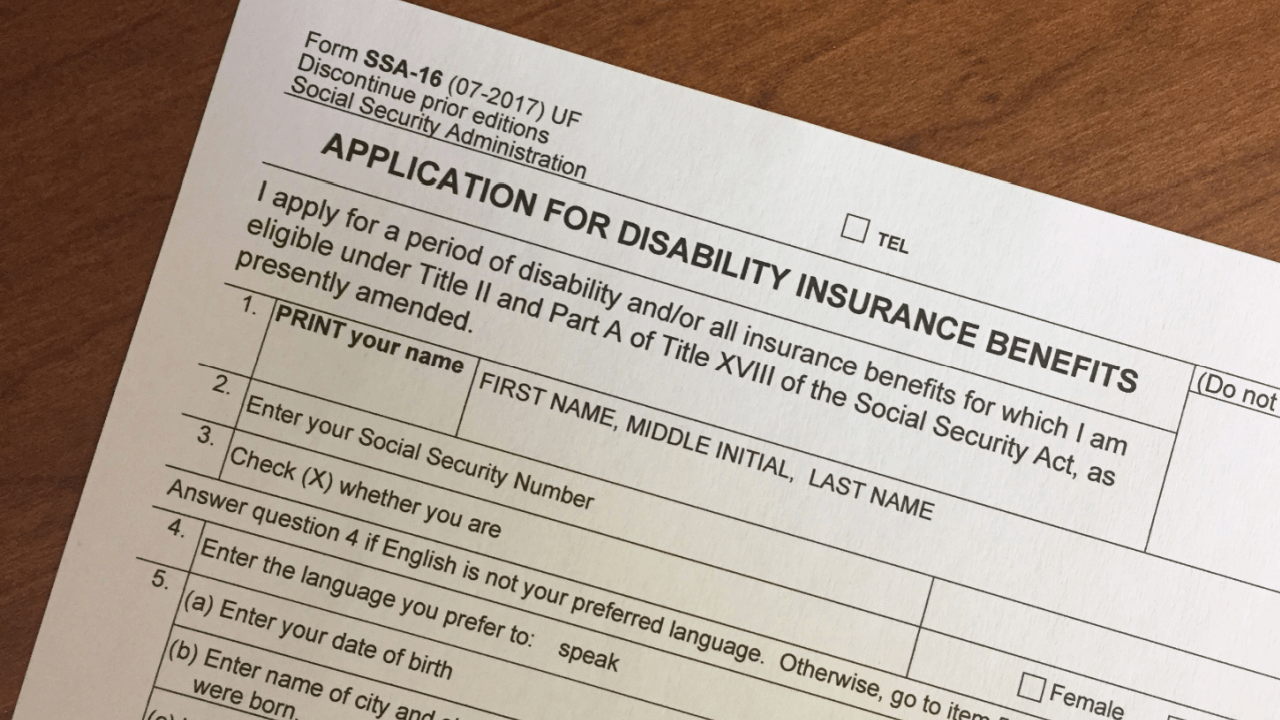
Your Complete Guide to Disability Approval Chances and Legal Help
Essential Facts: Disability Approval Chances and Legal Help
Understanding disability approval and legal help options is important for disability applications. Most disability applications face initial denial, and many applicants choose legal assistance during the process. This comprehensive guide explains legal representation in disability cases.
According to SSA data, approximately 21% of initial Social Security disability applications receive approval. At the hearing level, approval rates vary, with SSA data showing approximately 47% of cases approved at ALJ hearings. The Social Security disability process involves multiple stages—initial application, reconsideration, hearing, and appeals council—each with complex requirements and strict deadlines.
Success Factors: Understanding Disability Application Requirements
Multiple interconnected factors affect disability applications. Understanding these elements is important for the disability application process.
Medical Evidence That Wins Cases
Comprehensive medical documentation forms the foundation of successful disability claims. Critical success factors include complete treatment records spanning at least 12 months, detailed physician statements describing functional limitations, objective test results supporting subjective complaints, and properly documented residual functional capacity assessments. Attorneys ensure medical evidence meets Social Security’s specific requirements and obtain additional evaluations when gaps exist.
With legal help, cases receive thorough medical record analysis, strategic RFC development, and coordinated physician testimony. Without attorneys, claimants often submit incomplete records, miss critical deadlines, and fail to address Social Security’s medical criteria properly.
Work History Documentation Strategies
Work history significantly impacts approval chances, especially when combined with age and education factors. Attorneys leverage the Medical-Vocational Guidelines effectively, demonstrating how limitations prevent past relevant work and transferable skills application. They strategically present work history to maximize age category benefits and highlight physical/mental demands that current limitations prevent.
Approval rates vary by case type and condition according to SSA data. These improvements result from attorneys strengthening medical evidence, properly documenting work limitations, and presenting cases that align with Social Security’s evaluation criteria.
Legal Strategy: Understanding Attorney Representation in Disability Cases
Disability attorneys provide specialized representation that addresses Social Security Administration requirements. They provide expertise in disability law throughout the application process.
The Attorney Advantage in Disability Cases
Attorney expertise in disability law provides immediate case advantages through comprehensive medical record compilation and strategic analysis. Attorneys identify missing documentation, coordinate with treating physicians to obtain detailed RFC assessments, and secure expert witness testimony that strengthens medical evidence. They understand Social Security’s five-step evaluation process and present cases that directly address each criterion.
The step-by-step attorney approach includes: thorough case evaluation and strategy development, complete medical record gathering and analysis, coordination with medical experts for additional evaluations, strategic evidence presentation aligned with legal standards, and comprehensive hearing preparation with mock questioning sessions. Many applicants choose legal representation during the initial application process.
Legal Representation at Different Claim Stages
Legal representation value increases at each claim stage, with the most dramatic improvements occurring at hearings. Attorneys navigate appeals process complexities, ensuring proper documentation submission and meeting critical deadlines. Their hearing preparation strategies include witness coaching, evidence organization, and judge-specific presentation tactics.
Many applicants choose legal representation at different stages of the appeals process, including reconsideration, hearings, appeals council, and federal court.
Timing Matters: Understanding When to Seek Legal Help
Strategic timing for legal representation can mean the difference between approval and years of appeals. Understanding when to seek attorney assistance maximizes your chances while minimizing delays and complications in your disability claim process.
Initial Application vs. Appeals Legal Help
Many applicants choose legal representation at various stages, including initial application and appeals. According to SSA data, approximately 47% of cases are approved at ALJ hearings. The decision tree for seeking help includes immediate attorney consultation for complex medical conditions, multiple impairments, or previous denials, while straightforward cases with strong medical evidence might proceed initially without representation.
Appeals deadline importance cannot be overstated—missing the 60-day appeal window means starting over completely. Timeline considerations show that hiring attorneys immediately after denial preserves all appeal rights and maximizes case development time. Early legal intervention allows comprehensive evidence gathering, medical expert coordination, and strategic case building that becomes impossible with rushed timelines.
Cost-benefit analysis strongly favors early representation despite contingency fee considerations. Attorney fees are capped at 25% of back pay or $7,200 maximum under SSA regulations. For example, if awarded $30,000 in back benefits, the attorney fee would be capped at $7,200, leaving $22,800.
Common Mistakes: Why Disability Claims Get Denied Without Legal Help
Self-represented disability claimants make predictable errors that result in preventable denials. Understanding these common pitfalls reveals why 79% of initial applications fail and demonstrates the critical value of professional legal representation.
Top 5 Preventable Claim Mistakes
Warning checklist of frequent errors:
- Incomplete medical documentation – Submitting partial records or missing critical specialist reports that demonstrate severity of limitations
- Inadequate medical source statements – Failing to obtain detailed RFC assessments from treating physicians that address specific functional limitations
- Missing work history details – Providing vague job descriptions that don’t clearly establish past relevant work demands and physical requirements
- Deadline violations – Missing the crucial 60-day appeal window or failing to submit required forms on time
- Poor hearing performance – Inadequate preparation leading to inconsistent testimony and failure to address judge’s specific concerns
How Attorneys Avoid These Pitfalls
Attorneys implement systematic error prevention strategies including comprehensive medical record requests from all treating sources, coordination with physicians to obtain detailed RFC statements, thorough work history analysis with specific job demand documentation, strict deadline tracking and calendar management, and intensive hearing preparation with mock questioning sessions.
Professional representation can help with application preparation and avoiding common mistakes in the disability process.
Understanding Legal Strategies in Disability Cases
Experienced disability attorneys employ time-tested strategies that consistently deliver results. These proven methods transform weak cases into winning claims and maximize approval chances across all stages of the disability process.
Evidence-Based Legal Approaches
Successful disability attorneys understand that comprehensive evidence gathering forms the foundation of every winning case. They systematically collect medical records, coordinate with treating physicians to obtain detailed opinions, and secure objective medical evidence that clearly demonstrates functional limitations. Attorney-guided medical expert utilization ensures that independent medical evaluations support rather than undermine your claim, while strategic vocational expert challenges expose weaknesses in Social Security’s job availability arguments.
Winning Hearing Presentation Tactics
Administrative law judge strategies require deep understanding of individual judge preferences and case law precedents. Skilled attorneys prepare clients for specific questioning techniques, organize medical evidence for maximum impact, and present testimony that addresses legal standards rather than just medical symptoms. They anticipate judge concerns, prepare compelling opening statements, and conduct strategic cross-examinations of Social Security’s experts.
Appeals court preparation begins at the initial application level, with attorneys building comprehensive records that withstand appellate scrutiny. This approach involves building comprehensive records for potential appeals.
Final Thoughts: Understanding Your Disability Application Options
Many disability applicants choose legal representation during the application process. Legal representation provides professional assistance with the disability application process.
Professional representation offers long-term benefits that extend far beyond the initial approval. Attorneys ensure your case is built on solid ground from the start, reducing the likelihood of future complications, appeals, or benefit interruptions. They handle the complex paperwork, navigate bureaucratic obstacles, and communicate with Social Security officials on your behalf, eliminating the stress and confusion that often overwhelm claimants.
The financial impact of faster approvals cannot be overstated. Every month of delay means lost income and mounting bills. With legal help, you’re not just improving your approval odds—you’re accelerating your path to financial stability and reclaiming control over your future.
Get Legal Help for Your Disability Claim
Acting now gives you immediate advantages: a free consultation with no obligation, contingency fee structure (we only get paid if your case is successful), case evaluation, and professional representation.
Ready to take control of your disability claim? Visit Social Security Disability today to get your free case evaluation, connect with experienced disability attorneys, access helpful resources and guides, and start your path to approval.
Professional legal representation is available for disability applications. Visit Social Security Disability now or call to speak with a disability attorney about your case.
Frequently Asked Questions
1. What percentage of disability claims are approved with legal help?
Disability claims with legal representation have approval rates of 60-70% at the hearing level, compared to 30-40% for unrepresented claimants. Legal help significantly improves your chances throughout the appeals process.
2. When should I hire a disability lawyer for my claim?
You should consider hiring a disability lawyer immediately after receiving an initial denial, or even during your initial application if you have a complex medical condition. Early legal intervention maximizes your approval chances.
3. How much does legal help cost for disability claims?
Disability attorneys work on contingency, meaning they only get paid if you win. Fees are capped at 25% of back pay or $7,200, whichever is less. There are no upfront costs for legal representation.
4. Can legal help speed up my disability approval process?
Yes, attorneys can expedite your case by ensuring complete documentation, avoiding procedural delays, and properly preparing for hearings. Legal representation often results in faster approvals and fewer appeals.
5. What happens if my lawyer doesn't improve my approval chances?
If your case is unsuccessful, you owe nothing to your attorney under the contingency fee arrangement. However, legal representation significantly improves approval odds, making success much more likely.
Key Takeaways
- Statistical Advantage: Legal representation increases disability approval chances from 30-40% to 60-70% at the hearing level
- Expert Navigation: Attorneys understand complex disability law and can avoid common claim mistakes that lead to denials
- No Risk Investment: Contingency fee structure means you pay nothing unless your disability claim succeeds
- Complete Documentation: Legal help ensures proper medical evidence and work history compilation for stronger cases
- Strategic Timing: Early legal intervention, especially after initial denial, maximizes your chances of disability approval


